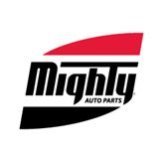-
Welcome to Auto Parts Forum
Whether you are a veteran automotive parts guru or just someone looking for some quick auto parts advice, register today and start a new topic in our forum. Registration is free and you can even sign up with social network platforms such as Facebook, X, and LinkedIn.
RockAuto May Newsletter : Early Edition
-
Similar Topics
-
By Mighty Auto Parts
The post
link hidden, please login to view appeared first on link hidden, please login to view. Selecting the right maintenance schedule is imperative for the health of the engine in preventing major engine repairs or in extreme cases preventing a total engine replacement. Neglecting the required service interval can result in an accumulation of sludge and deposits that can restrict the flow of lubricant to vital engine components. Consider the following: […]
The post
link hidden, please login to view appeared first on link hidden, please login to view.
link hidden, please login to view -
By shelitaauto
Source: Gasgoo
URL:
link hidden, please login to view According to foreign media reports, the Australian Federal Automobile Industry Chamber of Commerce released automobile sales data in May, the month of new car sales in Australia hit a record high. Sales of hybrid vehicles doubled year on year to reach 15.8 percent of the market, compared with a 0.4 percent increase in electric vehicle sales.
Almost one in every four new cars in Australia is currently a low-emission vehicle, so hybrid and electric vehicles are taking a greater share of the market. Meanwhile, Australians’ love affair with larger cars is still on the rise, with SUVs still dominating and ute sales continuing to grow.
This trend has more than doubled the popularity of hybrid cars in 2024, with more than 66,000 units sold, compared to less than 30,000 in the same period in 2023.
Electric vehicle sales also increased in Australia in May, with more than 8,900 units sold, accounting for 8.1 per cent of all new car sales, with more than 40,000 new electric vehicles on the road in Australia in the first five months of the year.
Tony Weber, the chamber’s chief executive, said the auto industry is working hard to meet the needs of drivers. “The continued growth in vehicle sales underscores consumer confidence and demonstrates the industry’s ability to meet the diverse needs of Australian consumers in the face of the current economic challenges,” he said.
However, large vehicles remain a popular choice for drivers regardless of fuel consumption, with SUVs accounting for more than half of vehicles sold and light commercial vehicles accounting for 22 percent of new vehicles. UTE also took three of the top five best-selling cars in May, with the Ford Ranger taking the top spot, followed by the Toyota Hilux and Isuzu’s D-Max light truck in fourth place.
Image source: Ford
Toyota was again the top-selling car manufacturer in Australia for the month, followed by Ford, Mazda, Kia and Hyundai. The data also showed a drop in sales for electric car leader Tesla, with the US company selling 3,567 vehicles in Australia in May, compared with 4,476 in the same month last year.
Its main electric car rival BYD, however, saw sales climb, with the Chinese company selling 1,914 electric vehicles in the month, up 32 percent from a year earlier.
The growing sales of electric and hybrid vehicles come ahead of the introduction in January of Australia’s first fuel efficiency standard, a legal standard that will set emissions limits on carmakers’ fleets of passenger cars, large and commercial vehicles in an attempt to reduce transport emissions by 2030.
-
By Counterman
ost of our workdays are spent typing and mouse-clicking our way through hundreds of parts requests and catalogue prompts, and we rely heavily on computers for most aspects of our daily operations. Think of the last time your store’s internet or server network went down. Catalogue and inventory information, ordering and receiving functions, invoice printers, driver dispatch and order tracking, and even time clock access are all crippled when the plug gets pulled. Chaos ensues, and if there is no backup plan in place, work grinds to a halt. Depending on corporate policy, you may even have to close the doors until you are back up and running.
Even when our computers are running at peak efficiency, the quality of the information we feed into the system has the potential to create a snowball effect of errors, wasting time, personnel resources, inventory dollars, and, ultimately, disappointing our customers. The phrase “garbage in, garbage out” dates to the early days of the computing industry and is a simple way of recalling that no matter how far information technology has progressed in the past 75 years, we still need to capture the correct information to begin that automated process successfully.
It all begins with the customer. We rely on them to present us with the basic vehicle and diagnostic information required to catalogue the correct parts, but once we take control of the process, we still need to maintain the integrity of that information. Asking the right questions, following relevant prompts, and verifying options that differentiate similar products lead to successful sales and reduce the number of returns.
When you call the parts department at your local OEM dealer, their initial reply is often to ask for the last eight digits of the VIN. That (relatively) simple bit of information serves to eliminate a lot of these errors, identifying the vehicle and all its individual options. It eliminates multiple questions that must be asked (and correctly answered) to lead the parts specialist to the appropriate listings. This reduces the margin for error, but certainly does not eliminate it altogether. Just as a customer might misquote their vehicle descriptors, the customer may misread or misspeak the VIN information, or the parts specialist might write it down incorrectly. It is also a good practice to keep accurate notes (on paper) to keep track of previous calls and orders. These notes also may help your coworkers get up to speed if they need to take over for you with a customer, so legible handwriting counts! Complete notes will help refresh your memory in the event of a comeback or complaint, and may come in handy if you are asked to explain what went wrong with a particular transaction.
I prefer to repeat a customer’s information back to them, showing that they have my full attention and confirming that what I think I heard is what they believe they asked for. They should not have to repeat themselves, but confirmation is critical at this point in the process. It is certainly better than getting through an entire transaction before realizing the customer who just told you they drive a “Cherokee” is now busy loading their parts order into the back of a GRAND Cherokee!
Incorrect information anywhere within the conversation can skew the results, and guessing at vehicle identification or options is a recipe for returns. Occasionally, we can skip through irrelevant screen prompts, or even bypass the computer altogether when we know something by heart, but when in doubt, ASK THE QUESTION! We may not be able to prevent our customers from guessing at critical answers, or even from giving us inconsistent information, but we are able to limit the amount of “garbage” that we feed into our computer on our customer’s behalf.
When we do encounter a legitimate catalog error, we shouldn’t just blame the computer. In these cases, the “garbage out” is the result of an error (likely made by another human) that was fed into the database. The computer is just repeating the answer it was programmed to give based on the information requested. It is important to report these errors so that the catalogue provider can investigate the error and make any necessary corrections quickly.
The post
link hidden, please login to view appeared first on link hidden, please login to view.
link hidden, please login to view -
By Mighty Auto Parts
The post
link hidden, please login to view appeared first on link hidden, please login to view. Pinpointing the reason for a crank but no-start, extended cranking, rough idle or misfi re symptoms can be a challenge that can consume a lot of diagnostic time to resolve the complaint. Often the Malfunction Indicator Light (MIL) will be illuminated and a PO300 random misfire code may be stored in memory. If you are […]
The post
link hidden, please login to view appeared first on link hidden, please login to view.
link hidden, please login to view -
-
By AutoZone
MEMPHIS, Tenn. , April 30, 2024 (GLOBE NEWSWIRE) -- AutoZone, Inc. (NYSE: AZO), the leading retailer and distributor of automotive replacement parts and accessories in the Americas , will release results for its third quarter ended Saturday, May 4, 2024 , before market open on Tuesday, May 21, 2024
link hidden, please login to view
-





Recommended Posts
Join the conversation
You can post now and register later. If you have an account, sign in now to post with your account.
Note: Your post will require moderator approval before it will be visible.